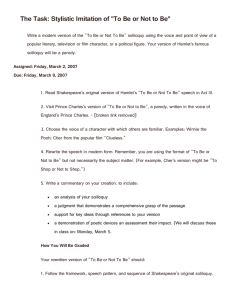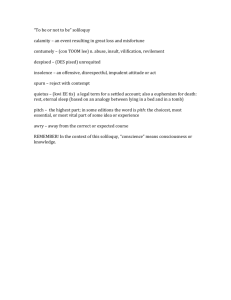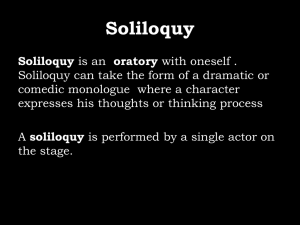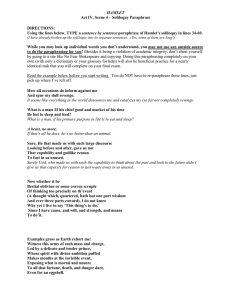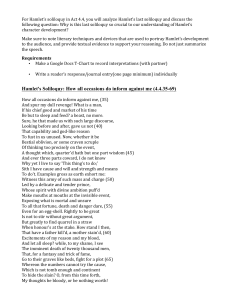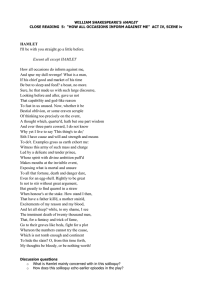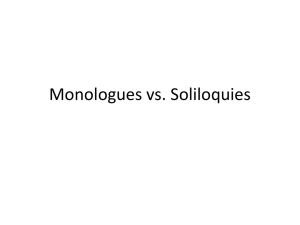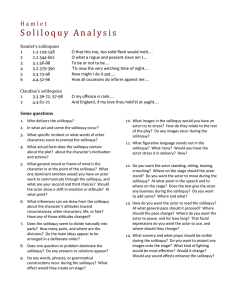Hamlet Soliloquy Instructions
advertisement
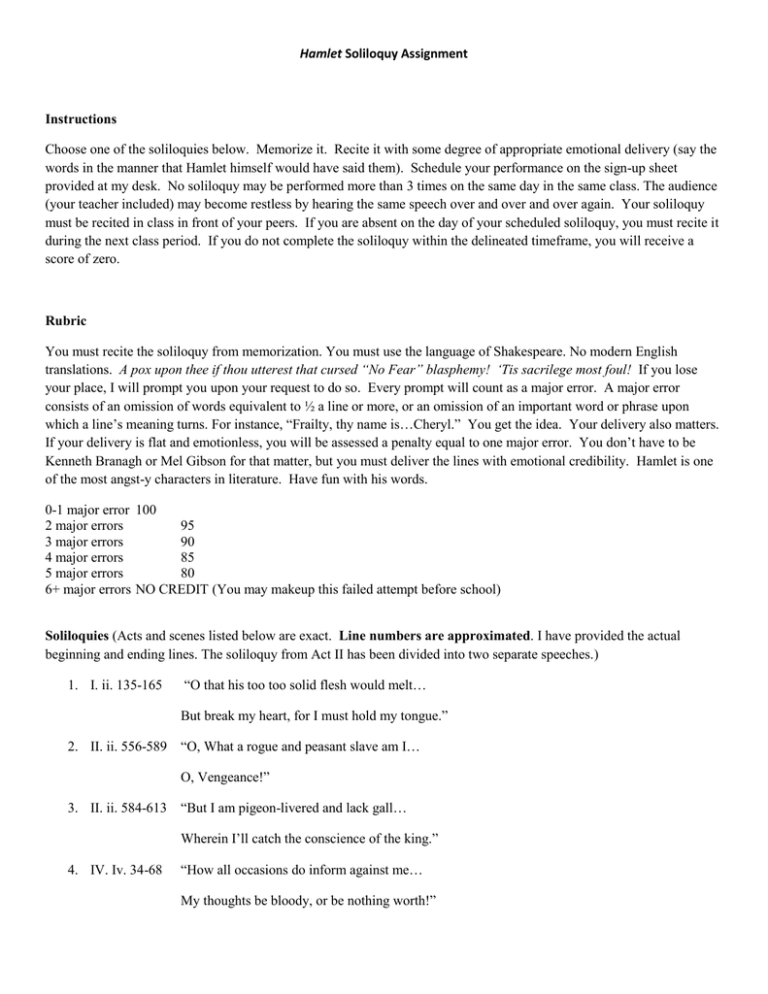
Hamlet Soliloquy Assignment Instructions Choose one of the soliloquies below. Memorize it. Recite it with some degree of appropriate emotional delivery (say the words in the manner that Hamlet himself would have said them). Schedule your performance on the sign-up sheet provided at my desk. No soliloquy may be performed more than 3 times on the same day in the same class. The audience (your teacher included) may become restless by hearing the same speech over and over and over again. Your soliloquy must be recited in class in front of your peers. If you are absent on the day of your scheduled soliloquy, you must recite it during the next class period. If you do not complete the soliloquy within the delineated timeframe, you will receive a score of zero. Rubric You must recite the soliloquy from memorization. You must use the language of Shakespeare. No modern English translations. A pox upon thee if thou utterest that cursed “No Fear” blasphemy! ‘Tis sacrilege most foul! If you lose your place, I will prompt you upon your request to do so. Every prompt will count as a major error. A major error consists of an omission of words equivalent to ½ a line or more, or an omission of an important word or phrase upon which a line’s meaning turns. For instance, “Frailty, thy name is…Cheryl.” You get the idea. Your delivery also matters. If your delivery is flat and emotionless, you will be assessed a penalty equal to one major error. You don’t have to be Kenneth Branagh or Mel Gibson for that matter, but you must deliver the lines with emotional credibility. Hamlet is one of the most angst-y characters in literature. Have fun with his words. 0-1 major error 100 2 major errors 95 3 major errors 90 4 major errors 85 5 major errors 80 6+ major errors NO CREDIT (You may makeup this failed attempt before school) Soliloquies (Acts and scenes listed below are exact. Line numbers are approximated. I have provided the actual beginning and ending lines. The soliloquy from Act II has been divided into two separate speeches.) 1. I. ii. 135-165 “O that his too too solid flesh would melt… But break my heart, for I must hold my tongue.” 2. II. ii. 556-589 “O, What a rogue and peasant slave am I… O, Vengeance!” 3. II. ii. 584-613 “But I am pigeon-livered and lack gall… Wherein I’ll catch the conscience of the king.” 4. IV. Iv. 34-68 “How all occasions do inform against me… My thoughts be bloody, or be nothing worth!”

